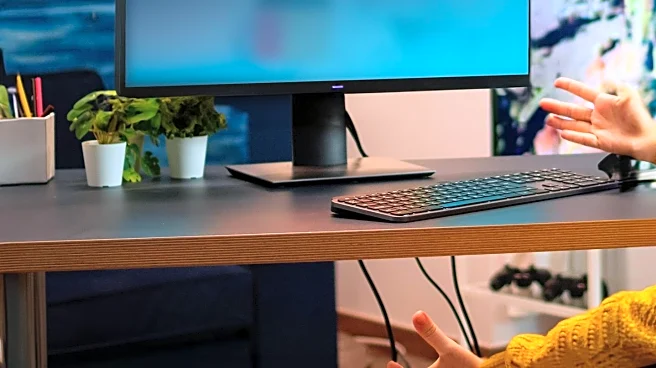What's Happening?
High blood pressure affects nearly half of U.S. adults, posing risks for heart disease, stroke, and other health issues. Physician assistant Ravyn Williams recommends starting home blood pressure monitoring around age 40, especially for those with risk factors. She suggests using clinically validated devices like Omron's platinum monitor and Withings BPM Connect for reliable readings. Williams emphasizes the importance of proper technique, such as using an upper arm cuff and maintaining correct posture during measurements. She also advises monitoring blood pressure at different times of the day to get an average reading.
Why It's Important?
Home blood pressure monitoring is crucial for early detection and management of hypertension, a leading cause of cardiovascular diseases. By empowering individuals to track their blood pressure, healthcare providers can better manage patient outcomes and reduce the burden on medical facilities. Accurate home monitoring can lead to timely interventions, potentially preventing severe health complications. As technology advances, the availability of user-friendly devices may encourage more people to take control of their health, fostering a proactive approach to wellness.
Beyond the Headlines
The rise of home health monitoring reflects broader trends in personalized healthcare and the shift towards preventive medicine. As individuals become more engaged in their health management, the demand for accessible and accurate monitoring tools is likely to grow. This trend may drive innovation in health technology, leading to more sophisticated devices and applications. Additionally, the focus on home monitoring highlights the importance of health education, as individuals must be informed about proper techniques and the significance of their readings.









